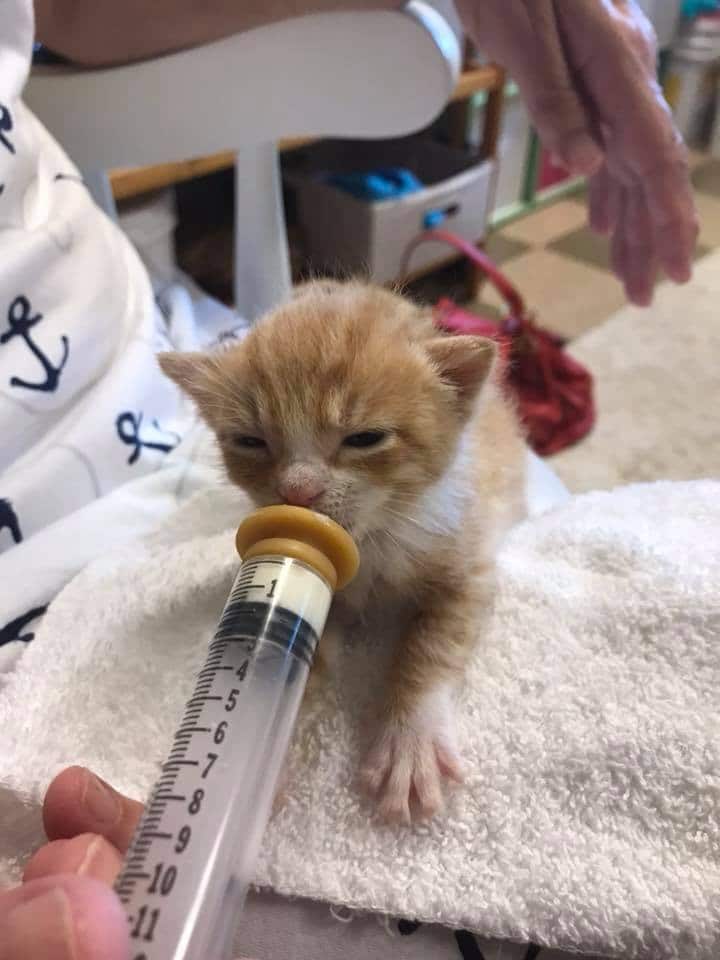
A Comprehensive Guide to Caring for a Baby Kitten
Bringing a baby kitten into your home is an incredibly rewarding experience, but it also comes with a significant responsibility. These tiny creatures require specialized care and attention to ensure their health and well-being. This comprehensive guide will provide you with all the essential information you need to know about how to take care of a baby kitten.
1. Nutrition
Feeding:
- Kittens under 8 weeks old need to be fed every 2-3 hours, around the clock.
- Use a kitten-specific formula that is specially designed for their nutritional needs.
- Warm the formula to body temperature before feeding.
- Use a bottle or syringe to feed the kitten, depending on their age and ability.
- Never feed a kitten cow’s milk, as it can cause digestive problems.
Weaning:
- Start introducing solid food around 3-4 weeks of age.
- Offer small amounts of kitten food mixed with formula.
- Gradually increase the amount of solid food and decrease the amount of formula over several weeks.
- By 8-10 weeks of age, the kitten should be fully weaned.
2. Hygiene
Bathing:
- Kittens do not need frequent baths, but they may need to be cleaned if they get dirty.
- Use a gentle, kitten-specific shampoo and warm water.
- Rinse the kitten thoroughly and dry them with a soft towel.
Grooming:
- Brush the kitten’s fur regularly to remove loose hair and prevent mats.
- Trim their nails as needed to prevent scratching.
- Clean their ears with a cotton ball dipped in a gentle ear cleaner.
3. Health
Vaccinations:
- Kittens need a series of vaccinations to protect them from common diseases.
- The first vaccinations are typically given at 6-8 weeks of age.
- Consult with your veterinarian for a recommended vaccination schedule.
Deworming:
- Kittens can be born with worms, which can cause health problems.
- Deworming is typically done at 2, 4, 6, and 8 weeks of age.
- Use a kitten-specific dewormer as directed by your veterinarian.
Flea and Tick Control:
- Kittens can pick up fleas and ticks from their environment.
- Use a kitten-specific flea and tick treatment as directed by your veterinarian.
- Check the kitten regularly for any signs of infestation.
4. Environment
Shelter:
- Provide the kitten with a warm, draft-free shelter.
- A cardboard box lined with a soft blanket can be a suitable option.
- Place the shelter in a quiet area away from loud noises and other pets.
Litter Box:
- Kittens need a litter box to use for elimination.
- Use a kitten-specific litter that is non-clumping and easy for them to dig in.
- Place the litter box in a convenient location and clean it regularly.
Toys:
- Kittens need plenty of toys to play with for both physical and mental stimulation.
- Provide a variety of toys, such as balls, strings, and interactive puzzles.
5. Socialization
Handling:
- Handle the kitten gently and frequently to help them become comfortable with human interaction.
- Talk to them in a soft voice and pet them gently.
Exposure to Other Animals:
- If possible, introduce the kitten to other friendly pets in a controlled environment.
- Supervise interactions and ensure that the other pets are gentle with the kitten.
6. Special Considerations
Orphaned Kittens:
- Orphaned kittens require specialized care.
- Contact a veterinarian or animal rescue organization for guidance.
- They may need to be bottle-fed and given additional support.
Premature Kittens:
- Premature kittens are born before they are fully developed.
- They require special care, including a warm environment, frequent feedings, and close monitoring.
- Consult with a veterinarian for specific instructions.
7. When to Seek Veterinary Care
- If the kitten is not eating or drinking well.
- If the kitten has diarrhea or vomiting.
- If the kitten has a runny nose or eyes.
- If the kitten is lethargic or unresponsive.
- If the kitten has any unusual discharge or swelling.
Conclusion
Caring for a baby kitten is a rewarding but challenging experience. By following these comprehensive guidelines, you can provide your furry friend with the best possible care and ensure their health and happiness. Remember to be patient, gentle, and attentive to their needs, and seek veterinary assistance whenever necessary. With proper care, your baby kitten will thrive and bring years of joy and companionship into your life.
